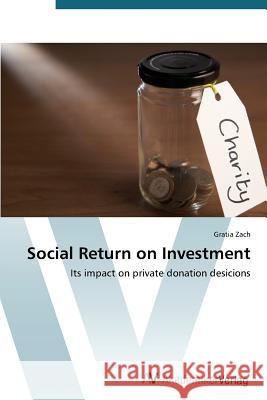Social Return on Investment » książka
Social Return on Investment
ISBN-13: 9783639720242 / Angielski / Miękka / 2014 / 124 str.
The Social Return on Investment (SROI) is seen as a new invention to measure efficacy in nonprofit organizations and it is often advertised as a figure which can be easily communicated to private donors and thus, facilitate fundraising in the increasingly competitive third sector. This study analysis the perceived significance of SROI by private donors by using the method of conjoint analysis. A multivariate approach has been subject of elaboration including three other factors besides SROI that influence a donation decision which have been derived from literature: the brand awareness of an organization, the purpose of a donation and the solicitation type. The empirical survey concludes that the SROI's importance for a private donor in a donation decision amounts to 42%, ranked highest, followed by brand awareness of the organization, then the solicitation type and ranked lowest, the purpose.
The Social Return on Investment (SROI) is seen as a new invention to measure efficacy in nonprofit organizations and it is often advertised as a figure which can be easily communicated to private donors and thus, facilitate fundraising in the increasingly competitive third sector. This study analysis the perceived significance of SROI by private donors by using the method of conjoint analysis. A multivariate approach has been subject of elaboration including three other factors besides SROI that influence a donation decision which have been derived from literature: the brand awareness of an organization, the purpose of a donation and the solicitation type. The empirical survey concludes that the SROIs importance for a private donor in a donation decision amounts to 42%, ranked highest, followed by brand awareness of the organization, then the solicitation type and ranked lowest, the purpose.











